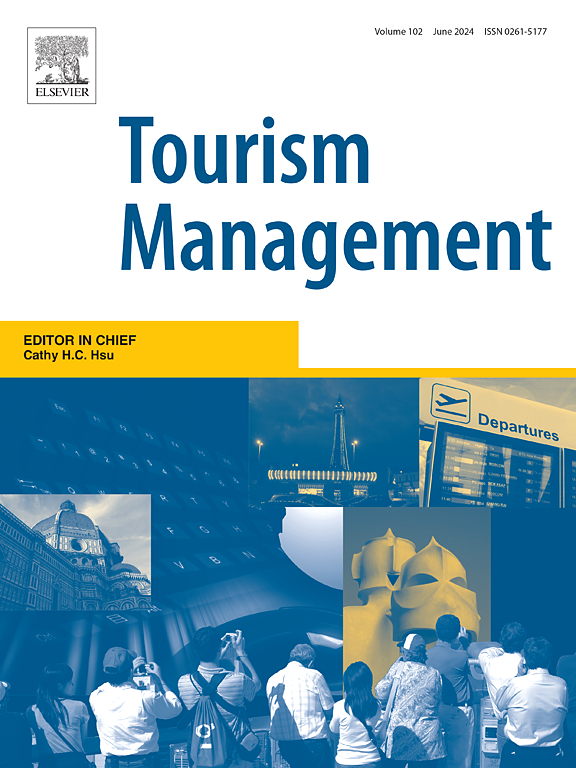从旅游需求到目的地竞争力:空间溢出视角
IF 12.4
1区 管理学
Q1 ENVIRONMENTAL STUDIES
引用次数: 0
摘要
鉴于邻近目的地之间在国际旅游需求方面的空间相互依赖以及溢出效应对目的地竞争力的重要性,本研究旨在引入一种新的相对目的地竞争力概念,通过明确考虑竞争目的地和互补目的地之间的动态相互作用以及每个客源市场的独特特征,超越了传统的孤立方法。概念化是通过一个先进的时空计量经济学框架来实现的,该框架对从每个需求系统中提取的溢出效应进行了更广泛的定义,以衡量目的地相对于源市场和系统中其他目的地的竞争力。通过全球和地方估计,提取旅游需求和价格的目的地级净溢出效应,作为相对竞争力的指标。这一框架被用于实证评估亚洲旅游目的地在不同客源市场上的竞争力,为目的地竞争力和旅游需求提供有价值的见解。本文章由计算机程序翻译,如有差异,请以英文原文为准。
From tourism demand to destination competitiveness: A spatial spillover perspective
In light of the spatial interdependence between neighbouring destinations in terms of their international tourism demand and the importance of spillovers to destination competitiveness, this study aims to introduce a novel conceptualisation of relative destination competitiveness that moves beyond the traditional isolated approach by explicitly considering the dynamic interplay between competing and complementary destinations and the unique characteristics of each source market. The conceptualisation is operationalised through an advanced spatiotemporal econometric framework with a broader definition of spillovers extracted from each demand system to gauge destination competitiveness relative to both source markets and other destinations in the system. Global and local estimations are performed to extract the destination-level net spillover effects of tourism demand and price, serving as indicators of relative competitiveness. This framework is applied to empirically assess the competitiveness of Asian destinations across various source markets, offering valuable insights into both destination competitiveness and tourism demand.
求助全文
通过发布文献求助,成功后即可免费获取论文全文。
去求助
来源期刊

Tourism Management
Multiple-
CiteScore
24.10
自引率
7.90%
发文量
190
审稿时长
45 days
期刊介绍:
Tourism Management, the preeminent scholarly journal, concentrates on the comprehensive management aspects, encompassing planning and policy, within the realm of travel and tourism. Adopting an interdisciplinary perspective, the journal delves into international, national, and regional tourism, addressing various management challenges. Its content mirrors this integrative approach, featuring primary research articles, progress in tourism research, case studies, research notes, discussions on current issues, and book reviews. Emphasizing scholarly rigor, all published papers are expected to contribute to theoretical and/or methodological advancements while offering specific insights relevant to tourism management and policy.
 求助内容:
求助内容: 应助结果提醒方式:
应助结果提醒方式:


